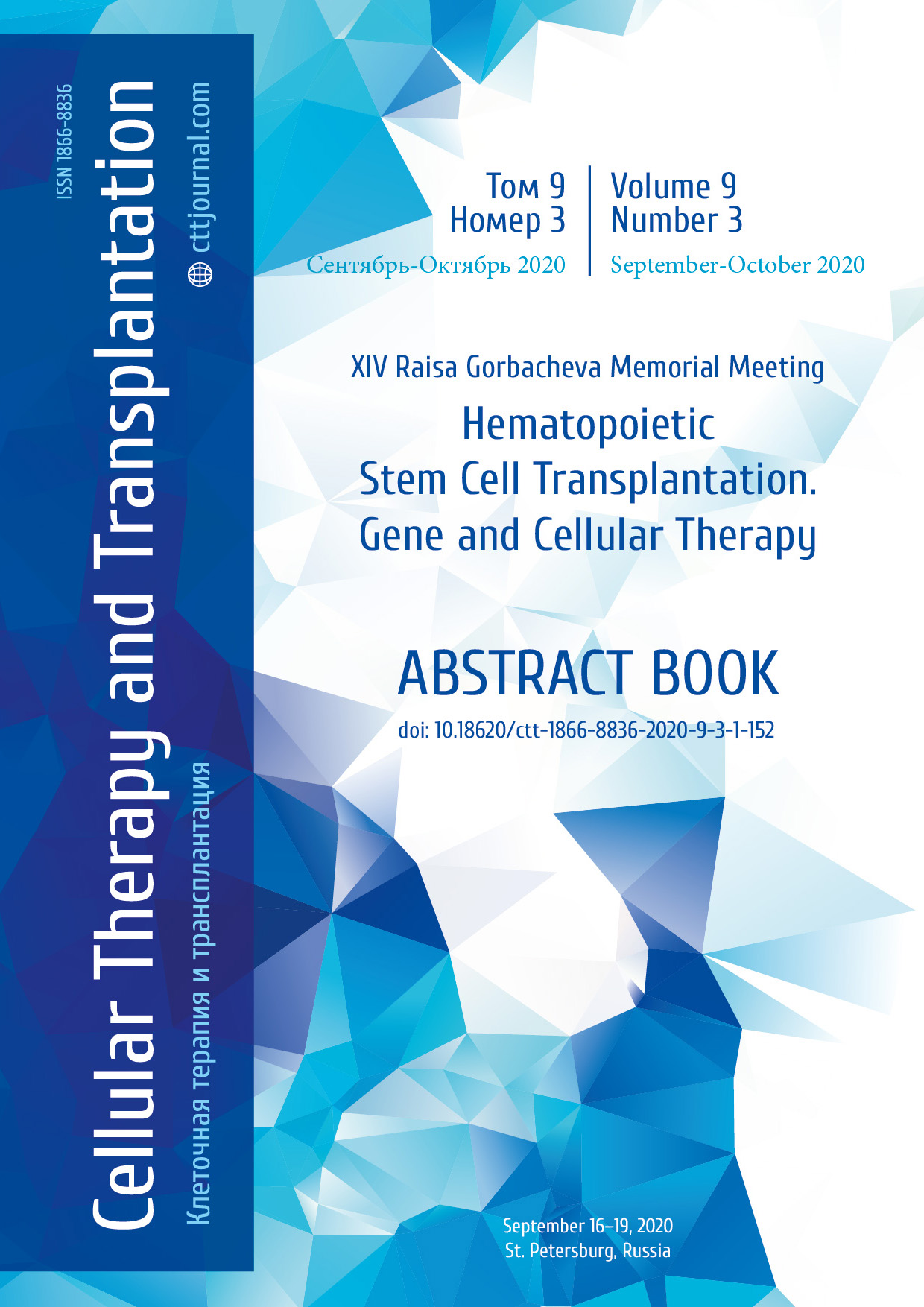PI-02. A clinical case of severe cytomegalovirus gastroesophagitis after allogeneic related transplantation of hematopoietic stem cells
Natalia A. Burlaka, Teymur Z. Aliev, Irina O. Kostareva, Yuri V. Lozovan, Denis V. Shevtsov, Amina M. Suleimanova, Nara G. Stepanyan, Elena B. Machneva, Natalia V. Sidorova, Kirill I. Kirgizov, Svetlana R. Varfolomeeva
N. N. Blokhin National Medical Research Center of Oncology, Moscow, Russia
Contact: Dr. Natalya A. Burlaka, Pediatric Oncology, e-mail: Dreamfull2009@yandex.ru
Summary
Introduction
Cytomegalovirus infection (CMVI) is one of the main infectious complications after hematopoietic stem cell transplantation (HSCT), leading to an unfavorable treatment outcome. Isolated cytomegalovirus gastroesophagitis is one of the rare variants of the course of CMVI. The purpose of our work was to present a case of cytomegalovirus gastroesophagitis, approaches to its diagnosis and treatment.
Case description
Patient H., 8 years old with primary clinical diagnosis of secondary myeloid leukemia, M2-variant, high risk, underwent allogeneic HSCT from a fully HLA-compatible (10/10) sibling. Myeloablative conditioning regimen was applied. GVHD prophylaxis included cyclosporine + methotrexate. CMV-serostatus was different in the donor-recipient pair: donor was CMV+, recipient, CMV-. Acute graft-versus-host reaction (GVHD) was documented up to grade 2, with skin lesions on day +10 and intestinal affection on day +24. Combined immunosuppressive therapy (IST) consisted of tocilizumab, methylprednisalone, budenofalk, with a complete response to therapy by day +50. Engraftment of the leukocyte lineage was revealed at +23 days. On day +30, the patient achieved complete donor chimerism and remission of the underlying disease. CMV replication was found in the bone marrow: up to 17 gene copies per ml. From day +8, a dyspeptic syndrome developed, with severe nausea, lack of appetite, abdominal pain syndrome, erosive lesions. We also observed oropharyngeal mucositis and enterocolitis grade 2-3. Against restoration of the graft function, we noted absence of positive dynamics and intensification of emetic syndrome with development of repeated vomiting, with an admixture of blood. Performed esophagogastroduodenoscopy on day 40 has shown pronounced erosive esophagitis, erosive gastritis, duodenitis. Virological study by PCR method, i.e., analysis of fluid (swabs) for CMV 2680 kopies/ml; herpes type 6, 392 kopies/ml; blood assays revealed CMV up to 945 copies/ml, oral cavity, 212 kopies/ml. CMV was not detected in fecal samples. Yellow-gray plaques with areas of bleeding ulcers, glossitis were seen on the visible mucous membranes of oral mucosa. The following treatment was performed: ganciclovir, IVIG, reduction of immunosuppression, combined gastroprotective therapy (proton pump inhibitors, bismuth-tripotassium dicitrate, magnesium alhedrate). Nutritional support was performed as parenteral nutrition (three-component container: amino acids, fats, dextrose) with fat reduction, due to increase in triglycerides, gradual implementation (glutamine, therapeutic mixtures for enteral nutrition, enriched with protein), lipid-reducing therapy (lipoic acid, nicotinic acid, omega-3 fatty acids).
Results
Against the background of complex therapy, CMV viremia was negative by day +70, the viral copy number in gastrointestinal tract decreased to 680 copies/ml, with positive dynamics achieved in emetic syndrome, with no body weight loss, epithelization of mucous membranes, normalization of appetite and general somatic status.
Conclusion
In cases of CMV serostatus mismatch in donor-recipient pair and upon development of life-threatening complications in children over the post-transplant period, active diagnostics is required, including assessment of clinical status, PCR diagnostics of viremia, and imaging methods. CMV esophagitis is a rare and severe complication that requires an integrated approach to treatment. Timely administration of multicomponent therapy, as well as active dynamic monitoring of the infectious process, are fundamental to successful treatment of severe CMV gastroesophagitis which may complicate allo-HSCT.
Keywords
Allogeneic hematopoietic stem cell transplantation, cytomegalovirus, gastritis, esophagitis.


